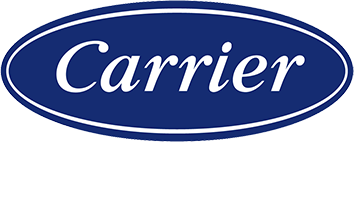How Often Should You Service Your Central AC Unit?
Well, the honest answer is every year. Why? First, let's talk about what happens in your outside unit during the cooling season (this will include heating if you have a heat pump). The compressor compresses the refrigerant gas to turn it into liquid refrigerant; it goes through an expansion device. It turns into hot, high-pressure liquid, which immediately evaporates from a small line on top of your outdoor coil by air being blown by an electric fan.
The evaporation process makes the low gas pressure and temperature low so that it can absorb enough heat from inside your home to turn back into a liquid before going through the whole system again. This low temperature and relatively high humidity air are then pushed through your ducts inside your home, where it cools, dehumidifiers, and heats (if you have a heat pump) with the rest of your AC system.
Typical Issues Your Air Conditioner Deals With
Now that we know how it works when everything is in good shape, let's talk about what can go wrong with this highly complex piece of equipment. Imagine a pin-hole leak in one of the lines on the outdoor coil allowing all the small amount of refrigerant to be pushed out into the atmosphere. The compressor will still run and compress the refrigerant until it starts to get low on refrigerant, causing it to overheat and eventually burn up.
Yes, your system would shut down but not before a lot of damage was done to your compressor. If you have a heat pump, imagine a pinhole in one of the lines allowing all the hot, high-pressure liquid to be pushed outside by an electric fan located on top of your outdoor coil. All that hot, high-pressure liquid turned into gas would cause your electric fan (inside the unit) to stop spinning.
All this happened because too much refrigerant escaped from inside the unit, making everything way too cold (no gas for the coil), water in pipes froze, compressor burned up, no heat (heat pump), and so on.
How Can You Help Maintain The AC Unit Better Yourselves?
So what can you do to prevent these catastrophic events? The best way is to have an experienced technician go out to your home or business twice a year, at the very least once in the fall before it starts cooling again and just after it stops cooling for the season.
This way, he will be able to inspect all parts of your AC system, check for proper refrigerant levels, look for any pin-hole leaks, check electric fans and compressor coils for any signs of burning, and look for corrosion on the outdoor unit, which could cause pin-hole leaks.
Many service technicians also suggest changing filters every month or two depending on how much airflow your system is getting. Those with low airflow (multiple furnaces, too small ducts, plugged filters) will use more energy than those with proper airflow, so the system will run longer and require more maintenance.
Are you doing your own AC service or want to know how much refrigerant is in your system? You can buy an inexpensive gauge at any auto parts store, home center, or online for less than $20 that screws into any standard Schrader valve found on all R-134a systems.
Then press the hose tip against the valve stem until it "pops," indicating a good seal, then read the pressure. If you don't have one yet, call around to local repair shops and ask if they have one you can borrow.
If you need to add any refrigerant, the only way is to recover all existing refrigerants first. You must use a recovery machine that can remove all traces of any remaining pressure inside your system so that none escapes into the atmosphere. If you don't do this and go ahead and put in a new refrigerant, it will be much richer than what came out, which was mixed with oil from the compressor, dirt, moisture, etc.
All these contaminants will cause corrosion inside your indoor unit, which could lead to pinhole leaks over time. Better yet, call an experienced technician who knows how to do this properly for less than $100 because improper removal or addition could damage your AC system, leaving you with more expensive repairs down the road.
Related Articles
https://www.ahs.com/home-matters/repair-maintenance/when-to-service-home-air-conditioner/
https://terrysacandheating.com/how-often-should-i-service-my-air-conditioner/
https://www.daikin.com.my/blog/2020/01/24/how-often-service-air-conditioner/
https://happyhiller.com/blog/how-often-should-i-service-my-air-conditioner/







